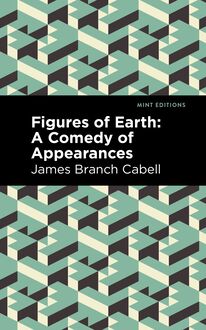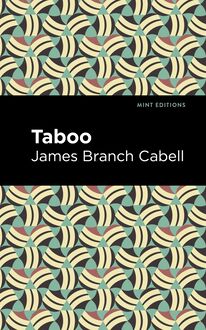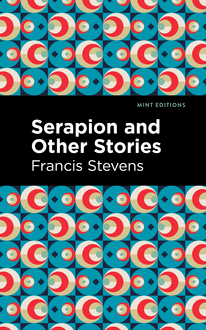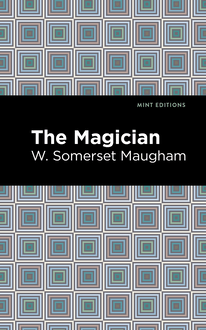-
 Univers
Univers
-
 Ebooks
Ebooks
-
 Livres audio
Livres audio
-
 Presse
Presse
-
 Podcasts
Podcasts
-
 BD
BD
-
 Documents
Documents
-
- Cours
- Révisions
- Ressources pédagogiques
- Sciences de l’éducation
- Manuels scolaires
- Langues
- Travaux de classe
- Annales de BEP
- Etudes supérieures
- Maternelle et primaire
- Fiches de lecture
- Orientation scolaire
- Méthodologie
- Corrigés de devoir
- Annales d’examens et concours
- Annales du bac
- Annales du brevet
- Rapports de stage
La lecture à portée de main
Vous pourrez modifier la taille du texte de cet ouvrage
Découvre YouScribe en t'inscrivant gratuitement
Je m'inscrisDécouvre YouScribe en t'inscrivant gratuitement
Je m'inscrisEn savoir plus
Vous pourrez modifier la taille du texte de cet ouvrage
En savoir plus

Description
The High Place: A Comedy of Disenchantment (1923) is a novel by James Branch Cabell. Set in a world where history and fantasy collide, where a lowly swineherd can rise to be Count of Poictesme, The High Place: A Comedy of Disenchantment is one work in a series of novels, essays, and poems known as the Biography of the Life of Manuel. Descended from a line of such legendary heroes as Jurgen and Dom Manuel, Florian, Duke of Puysange, is a relative disgrace to his family name. Known as a dishonorable man, disloyal husband, and destructive ruler, Florian harbors a secret desire. Since boyhood, when he first laid eyes on the daughter of King Helmas, Florian has known that the only way he could ever be happy would be through marriage to Melior. Unable to access the mystical Forest of Acaire, however, he takes out his frustration on friends and foes alike. When Janicot, a shadowy figure, offers Florian his blessing, the Duke sets out for the castle of King Helmas without regard to the details of their pact. Set in a fictionalized France of the 13th century, The High Place: A Comedy of Disenchantment is a captivating story of fantasy and adventure featuring a flawed hero whose mythical world is not entirely different from our own. Cabell’s work has long been described as escapist, his novels and stories derided as fantastic and obsessive recreations of a world lost long ago. To read The High Place: A Comedy of Disenchantment, however, is to understand that the issues therein—the struggle for power, the unspoken distance between men and women—were vastly important not only at the time of its publication, but in our own, divisive world. With a beautifully designed cover and professionally typeset manuscript, this edition of James Branch Cabell’s The High Place: A Comedy of Disenchantment is a classic of fantasy and romance reimagined for modern readers.
Sujets
Informations
| Publié par | Mint Editions |
| Date de parution | 03 août 2021 |
| Nombre de lectures | 0 |
| EAN13 | 9781513297293 |
| Langue | English |
Informations légales : prix de location à la page 0,0500€. Cette information est donnée uniquement à titre indicatif conformément à la législation en vigueur.
Extrait
The High Place
A Comedy of Disenchantment
James Branch Cabell
The High Place: A Comedy of Disenchantment was first published in 1923.
This edition published by Mint Editions 2021.
ISBN 9781513295794 | E-ISBN 9781513297293
Published by Mint Editions®
minteditionbooks.com
Publishing Director: Jennifer Newens
Design & Production: Rachel Lopez Metzger
Project Manager: Micaela Clark
Typesetting: Westchester Publishing Services
C ONTENTS P ART I. T HE E ND OF L ONG W ANTING I. T HE C HILD E RRANT II. S AYINGS ABOUT P UYSANGE III. W IDOWERS S EEK C ONSOLATION IV. E CONOMICS OF AN O LD R ACE V. F RIENDLY A DVICE OF J ANICOT VI. P HILOSOPHY OF THE L OWER C LASS VII. A DJUSTMENTS OF THE R ESURRECTED VIII. A T THE T OP OF THE W ORLD IX. M ISGIVINGS OF A B EGINNING S AINT X. W HO F EASTED AT B RUNBELOIS P ART II. T HE E ND OF L IGHT W INNING XI. P ROBLEMS OF B EAUTY XII. N ICETIES OF F RATRICIDE XIII. D ÉBONNAIRE XIV. G ODS IN D ECREPITUDE XV. D UBIETIES OF THE M ASTER XVI. S OME V ICTIMS OF F LAMBERGE XVII. T HE A RMOURY OF A NTAN XVIII. P ROBLEMS OF H OLINESS XIX. L OCKED G ATES XX. S MOKE R EVEALS F IRE P ART III. T HE E ND OF L EAN W ISDOM XXI. O F M ELIOR M ARRIED XXII. T HE W IVES OF F LORIAN XXIII. T HE C OLLYN IN THE P OT XXIV. M ARIE -C LAIRE XXV. T HE G ANDER THAT S ANG XXVI. H USBAND AND W IFE XXVII. T HE F ORETHOUGHT OF H OPRIG XXVIII. H IGHLY A MBIGUOUS XXIX. T HE W ONDER W ORDS XXX. T HE E RRANT C HILD
PART I
THE END OF LONG WANTING
“Lever un tel obstacle est à moy peu de chose.
Le Ciel defend, de vray, certains contentements;
Mais on trouvé avec luy des accommodemens.”
I
T HE C HILD E RRANT
P robably Florian would never have gone into the Forest of Acaire had he not been told, over and over again, to keep out of it. Obedience to those divinely set in authority was in 1698 still modish: none the less, such orders, so insistently repeated to any normal boy of ten, even to a boy not born of the restless house of Puysange, must make the venture at one time or another obligatory.
Moreover, this October afternoon was of the sun-steeped lazy sort which shows the world as over-satisfied with the done year’s achievements, of the sort which, when you think about it so long, arouses a dim dissent from such unambitious aims. It was not that the young Prince de Lisuarte—to give Florian his proper title—was in any one point dissatisfied with the familiar Poictesme immediately about him: he liked it well enough. It was only that he preferred another place, which probably existed somewhere, and which was not familiar or even known to him. It was only that you might—here one approximates to Florian’s vague thinking, as he lay yawning under the little tree from the East—that you might find more excitement in some place which strove toward larger upshots than the ripening of grains and fruits, in a world which did not every autumn go to sleep as if the providing of food-stuffs and the fodder for people’s cattle were enough.
Today, with October’s temperate sunlight everywhere, the sleek country of Poictesme was inexpressibly asleep, wrapped in a mellowing haze. The thronged trees of Acaire, as Florian now saw them just beyond that low red wall, seemed to have golden powder scattered over them, a powder which they stayed too motionless to shake off. Yet logic told him these still trees most certainly veiled wild excitements of some sort, for otherwise people would not be at you, over and over again, with exhortations to keep out of that forest.
Nobody was watching. There was nothing in especial to do, for Florian had now read all the stories in this curious new book, by old Monsieur Perrault of the Academy, which Florian’s father had last month fetched back from Paris: and, besides, nobody at Storisende had, for as much as a week, absolutely told Florian not to leave the gardens. So he adventured: and with the achievement of the adventure came a strengthening of Florian’s growing conviction that his elders were in their notions, as a rule, illogical.
For in Acaire, even when you went as far as Brunbelois, the boy found nothing hurtful. It was true that, had he not at the beginning of his wandering met with the small bright-haired woman who guided him thereafter, he might have made mistakes: and mistakes, as M é lusine acknowledged, might have turned out awkwardly in approaching the high place, since monsters have to be handled in just the right way. She explained to Florian, on that warm long October afternoon, that sympathy is the main requisite, because the main trouble with such monsters as the bleps and the strycophan ê s and the calcar (she meant only the grey one, of course) is that each is unique, and in consequence lonely.
The hatred men feel for every ravening monster that wears fangs and scales, she pointed out, is due to its apparel being not quite the sort of thing to which men are accustomed: whereas people were wholly used to having soldiers and prelates and statesmen ramping about in droves, and so viewed these without any particular wonder or disapproval. All that was needed, then, was to extend to the bleps and the strycophan ê s a little of the confidence and admiration which men everywhere else accorded to the destroyers of mankind: and you would soon see that these glittering creatures—as well as the tawny eale, and the leucrocotta, with its golden mane and whiskers, and the opal-coloured tarandus—were a great deal nicer to look at than the most courted and run-after people, and much less apt to destroy anybody outside of their meal hours.
In any event, it was M é lusine who had laid an enchantment upon the high place in the midst of the wood, and who had set the catoblepas here and the mantichora yonder to prevent the lifting of her spell, so that Florian could not possibly have found a better guide than M é lusine. She was kindly, you saw, but not very happy: and from the first, Florian liked and, in some sort, pitied her. So he rode with her confidingly, upon the back of the queerest steed that any boy of ten had ever been privileged to look at, not to speak of riding on it: and the two talked lazily and friendlily as they went up and up, and always upward, along the windings of the green way which long ago had been a road.
As they went, the body of this sweet-smelling M é lusine was warm and soft against his body, for M é lusine was not imprisoned in hard-feeling clothes such as were worn by your governesses and aunts. The monsters stationed along the way drew back as M é lusine passed; and some purred ingratiatingly, like gigantic kettles, and others made obeisances: and you met no other living creatures except three sheep that lay in the roadway asleep and very dingy with the dust of several hundred years. No self-respecting monster would have touched them. Thus Florian and M é lusine came through the forest without any hindrance or trouble, to the cleft in the mountain tops where the castle stood beside a lake: and Florian liked the stillness of all things in this high place, where the waters of the lake were without a ripple, and the tall grass and so many mist-white flowers were motionless.
He liked it even more when M é lusine led him through such rooms in the castle as took his fancy. He was glad that M é lusine did not mind when Florian confessed the sleeping princess—in the room hung everywhere with curtains upon which people hunted a tremendous boar, and stuck spears through one another, and burst forth into peculiarly solid-looking yellow flames—seemed to him even more lovely than was M é lusine. They were very much alike, though, the boy said: and M é lusine told him that was not unnatural, since Melior was her sister. And then, when Florian asked questions, M é lusine told him also of the old unhappiness that had been in this place, and of the reasons which had led her to put an enduring peacefulness upon her parents and her sister and all the other persons who slept here enchanted.
Florian had before today heard century-old tales about M é lusine’s father, Helmass the Deep-Minded. So it was very nice actually to see him here in bed, with his scarlet and ermine robes neatly folded on the armchair, and his crown, with a long feather in it, hung on a peg on the wall, just as the King had left everything when he went to sleep several hundred years ago. The child found it all extremely interesting, quite like a fairy tale such as those which he had lately been reading in the book by old Monsieur Perrault of the Academy.
But what Florian always remembered most clearly, afterward, was the face of the sleeping princess, Melior, as he saw it above the coverlet of violet-coloured wool; and she seemed to him so lovely that Florian was never wholly willing, afterward, to admit she was, but part of a dream which had come to him in his sleeping, on that quiet haze-wrapped afternoon, in the gardens of his own home. Certainly his father had found him asleep, by the bench under the little tree from the East, and Florian could not clearly recollect how he had got back to Storisende: but he remembered Brunbelois and his journeying to the high place and the people seen there and, above all, the Princess Melior, with a clarity not like his memories of other dreams. Nor did the memory of her loveliness quite depart as Florian became older, and neither manhood nor marriage put out of his mind the beauty that he in childhood had, however briefly, seen.
II
S AYINGS ABOUT P UYSANGE
W hen Florian awakened he was lying upon the ground, with the fairy tales of Monsieur Perrault serving for Florian’s pillow, in the gardens of Storisende, just by the little tree raised from the slip which his great-uncle, the Admiral, had brought from the other side of the world. Nobody knew the right name of this tree: it was called simply the tree from the East. Caterpillars had invaded it that autumn, and had eaten every leaf from the boughs, and then had gone away: but
-
 Univers
Univers
-
 Ebooks
Ebooks
-
 Livres audio
Livres audio
-
 Presse
Presse
-
 Podcasts
Podcasts
-
 BD
BD
-
 Documents
Documents
-
Jeunesse
-
Littérature
-
Ressources professionnelles
-
Santé et bien-être
-
Savoirs
-
Education
-
Loisirs et hobbies
-
Art, musique et cinéma
-
Actualité et débat de société
-
Jeunesse
-
Littérature
-
Ressources professionnelles
-
Santé et bien-être
-
Savoirs
-
Education
-
Loisirs et hobbies
-
Art, musique et cinéma
-
Actualité et débat de société
-
Actualités
-
Lifestyle
-
Presse jeunesse
-
Presse professionnelle
-
Pratique
-
Presse sportive
-
Presse internationale
-
Culture & Médias
-
Action et Aventures
-
Science-fiction et Fantasy
-
Société
-
Jeunesse
-
Littérature
-
Ressources professionnelles
-
Santé et bien-être
-
Savoirs
-
Education
-
Loisirs et hobbies
-
Art, musique et cinéma
-
Actualité et débat de société
- Cours
- Révisions
- Ressources pédagogiques
- Sciences de l’éducation
- Manuels scolaires
- Langues
- Travaux de classe
- Annales de BEP
- Etudes supérieures
- Maternelle et primaire
- Fiches de lecture
- Orientation scolaire
- Méthodologie
- Corrigés de devoir
- Annales d’examens et concours
- Annales du bac
- Annales du brevet
- Rapports de stage




















